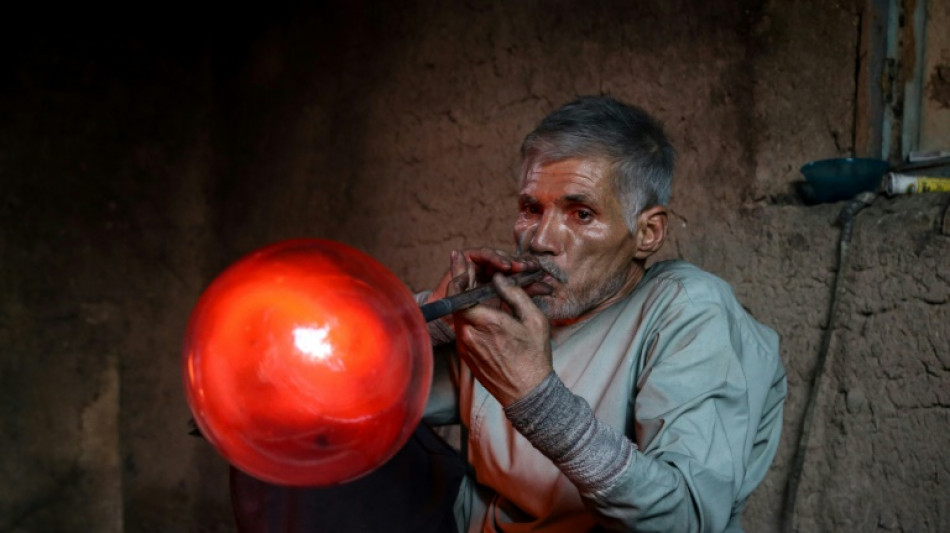
-
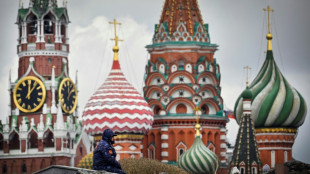 US envoy to visit Moscow as US pushes for ceasefire
US envoy to visit Moscow as US pushes for ceasefire
-
At least 24 killed in Kashmir attack on tourists: Indian police source

-
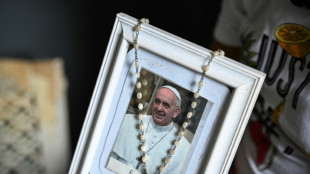 Philippine typhoon victims remember day Pope Francis brought hope
Philippine typhoon victims remember day Pope Francis brought hope
-
IMF slashes global growth outlook on impact of Trump tariffs

-
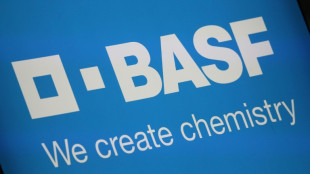 BASF exits Xinjiang ventures after Uyghur abuse reports
BASF exits Xinjiang ventures after Uyghur abuse reports
-
Nordics, Lithuania plan joint purchase of combat vehicles

-
 Gold hits record, stocks diverge as Trump fuels Fed fears
Gold hits record, stocks diverge as Trump fuels Fed fears
-
World could boost growth by reducing trade doubt: IMF chief economist

-
 IMF slashes global growth outlook on impact of US tariffs
IMF slashes global growth outlook on impact of US tariffs
-
IMF slashes China growth forecasts as trade war deepens
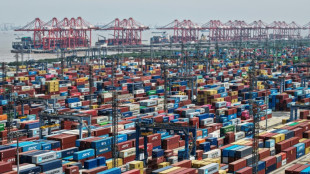
-
 Skipper Shanto leads Bangladesh fightback in Zimbabwe Test
Skipper Shanto leads Bangladesh fightback in Zimbabwe Test
-
US VP Vance says 'progress' in India trade talks

-
 Ex-England star Youngs to retire from rugby
Ex-England star Youngs to retire from rugby
-
Black Ferns star Woodman-Wickliffe returning for World Cup

-
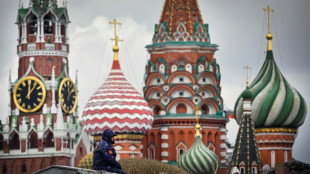 Kremlin warns against rushing Ukraine talks
Kremlin warns against rushing Ukraine talks
-
Mbappe aiming for Copa del Rey final return: Ancelotti

-
 US universities issue letter condemning Trump's 'political interference'
US universities issue letter condemning Trump's 'political interference'
-
Pope Francis's unfulfilled wish: declaring PNG's first saint

-
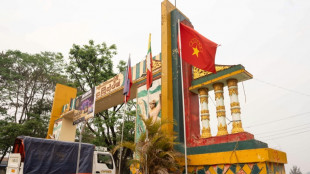 Myanmar rebels prepare to hand key city back to junta, China says
Myanmar rebels prepare to hand key city back to junta, China says
-
Hamas team heads to Cairo for Gaza talks as Israel strikes kill 26
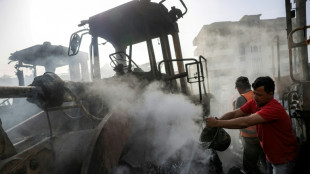
-
 Pianist to perform London musical marathon
Pianist to perform London musical marathon
-
India's Bumrah, Mandhana win top Wisden cricket awards

-
 Zurab Tsereteli, whose monumental works won over Russian elites, dies aged 91
Zurab Tsereteli, whose monumental works won over Russian elites, dies aged 91
-
Roche says will invest $50 bn in US, as tariff war uncertainty swells

-
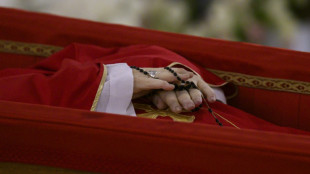 Pope Francis's funeral set for Saturday, world leaders expected
Pope Francis's funeral set for Saturday, world leaders expected
-
US official asserts Trump's agenda in tariff-hit Southeast Asia
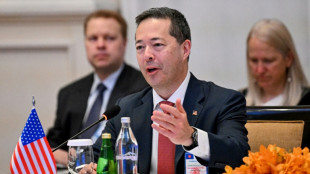
-
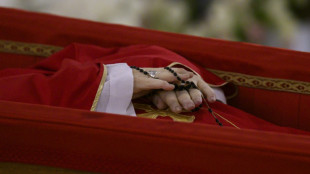 World leaders set to attend Francis's funeral as cardinals gather
World leaders set to attend Francis's funeral as cardinals gather
-
Gold hits record, stocks mixed as Trump fuels Fed fears

-
 Roche says will invest $50 bn in US over next five years
Roche says will invest $50 bn in US over next five years
-
Fleeing Pakistan, Afghans rebuild from nothing
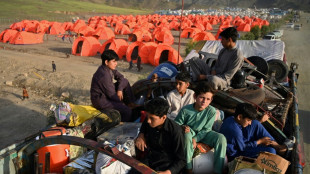
-
 US Supreme Court to hear case against LGBTQ books in schools
US Supreme Court to hear case against LGBTQ books in schools
-
Pistons snap NBA playoff skid, vintage Leonard leads Clippers

-
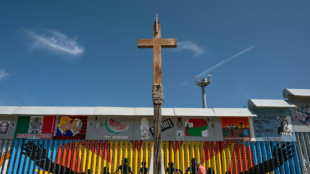 Migrants mourn pope who fought for their rights
Migrants mourn pope who fought for their rights
-
Duplantis kicks off Diamond League amid Johnson-led changing landscape

-
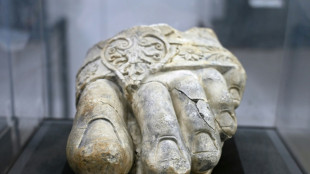 Taliban change tune towards Afghan heritage sites
Taliban change tune towards Afghan heritage sites
-
Kosovo's 'hidden Catholics' baptised as Pope Francis mourned

-
 Global warming is a security threat and armies must adapt: experts
Global warming is a security threat and armies must adapt: experts
-
Can Europe's richest family turn Paris into a city of football rivals?

-
 Climate campaigners praise a cool pope
Climate campaigners praise a cool pope
-
As world mourns, cardinals prepare pope's funeral
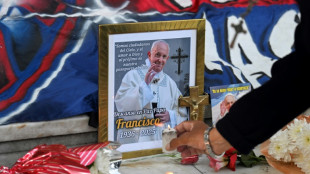
-
 US to impose new duties on solar imports from Southeast Asia
US to impose new duties on solar imports from Southeast Asia
-
Draft NZ law seeks 'biological' definition of man, woman

-
 Auto Shanghai to showcase electric competition at sector's new frontier
Auto Shanghai to showcase electric competition at sector's new frontier
-
Tentative tree planting 'decades overdue' in sweltering Athens

-
 Indonesia food plan risks 'world's largest' deforestation
Indonesia food plan risks 'world's largest' deforestation
-
Gold hits record, stocks slip as Trump fuels Fed fears

-
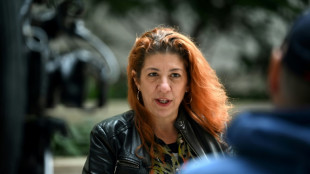 Trump helps enflame anti-LGBTQ feeling from Hungary to Romania
Trump helps enflame anti-LGBTQ feeling from Hungary to Romania
-
Woe is the pinata, a casualty of Trump trade war
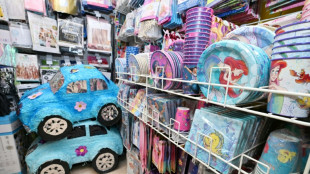
-
 'Like orphans': Argentina mourns loss of papal son
'Like orphans': Argentina mourns loss of papal son
-
Trump tariffs torch chances of meeting with China's Xi


Fragile but unbroken, Afghan glassblowers refuse to quit
Seated in front of a searing furnace, Ghulam Sakhi Saifi teases forth sinews of molten blue glass -- the guardian of an Afghan glassblowing trade refusing to break with tradition.
"This is our art, our inheritance. It has fed us for a long time," he told AFP, resting from the work that has singed his knuckles and calloused his palms.
"We are trying to make sure it is not forgotten. If we do not pass it down, it will disappear from the whole world," said Saifi, who guesses his age is around 50.
Glassblowing in Afghanistan's western city of Herat is an ancient craft. Saifi says it has run in his family for about three centuries.
The last two furnaces in the windswept metropolis near the border with Iran are in his family home and a mud-and-straw shed with a holey roof in the shadow of Herat's citadel.
- 'Slow suffocation' -
Saifi now lights one of the furnaces only once a month -- eking out around $30 from his stock of cups, plates and candleholders after expensive wood for fuel, dyes and other raw materials are accounted for.
He attributes the dramatic downturn to the exodus of already low numbers of foreign customers during the Covid-19 pandemic followed by the 2021 Taliban takeover, which saw many diplomats and aid workers pack up and leave.
Cheaper Chinese-made imports have also dented demand.
"There have been times when we haven't worked for three months -- we sit at home forever," he said.
"Locals have no use for these products, for the price they would first think to buy two loaves of bread for their children."
But when the furnace is lit, Saifi is in his element.
With a crude kitchen knife and a blowpipe he pulls glowing globs of glass out of the mud furnace and inflates them into household wares.
Unlike in the past, when they used quartz, the glassblowers now use easier-to-findrecycled bottles shattered into shards and superheated back into their liquid state.
The green and blue pieces cool into charmingly imperfect shapes, shot through with air bubbles, and are sold from clattering piles in shops in Herat and the capital Kabul for around $3 each.
Outside the shed it is already 36 degrees Celsius (97 degrees Fahrenheit) but stepping over the threshold is like being gripped by a sudden fever.
"Sometimes we really feel the heat, I think I am being slowly suffocated," Saifi said. "But this is our inheritance, we are used to it.
"Today is a bad day, but maybe it will get better in the future. Maybe the day after tomorrow, we hope to God."
- 'Craft needs to endure' -
A gaggle of boys and teenagers assists Saifi in his work, but it is growing hard to tempt the younger generation into a trade they view as a dead end.
His eldest son became an expert in the craft only to abandon it for migrant labour over the border in Iran.
Two cousins who learned to blow glass also saw no future and downed their tools.
His middle son, 18-year-old Naqibullah, vows he will continue the trade, though it's not clear how.
Before the Taliban takeover there was still enough demand for three days of work a week -- a distant prospect for the young man who shares shifts with his father on the rare occasion they light the furnaces.
"We hope that there is a future and that day by day things will get better," Naqibullah said.
"Even if we're not making much money the craft needs to endure," he added. "The art of making things by hand needs to be preserved. We can't let this skill disappear."
R.Kloeti--VB

